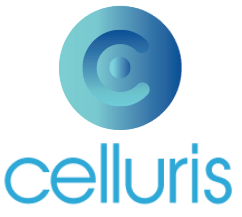In recent years, science and medicine have made significant advancements in anti-tumor therapy. An example of this is the development of CAR-T Cell Therapy as an important method for treating oncology patients. This technology has proven to be a highly effective and less invasive alternative to conventional therapies such as radiotherapy and chemotherapy.
CAR-T Cell Therapy relies on the patients’ immune system to recognize and attack cancer cells. This type of cancer immunotherapy enhances immune cells, relieving their suppression or directly activating them to perform their immune function more effectively.
CAR-T Cells are here to revolutionize the treatment of hematological cancers, offering benefits such as a personalized approach and a new possibility of cure for refractory patients, i.e., those who have not responded to conventional therapies like chemotherapy, radiotherapy, or transplantation.
But what are the main differences between conventional treatments and the CAR-T method? Is CAR-T Cell Therapy more effective than chemotherapy, radiotherapy, and surgical procedures?
Firstly, what is CAR-T?
CAR-T Cell treatment (Chimeric Antigen Receptor T-cell) represents an innovation in the field of immunotherapy. This method involves the genetic modification of the patient’s immune system cells so that they can specifically identify and attack cancer cells.
Currently, this method is approved and indicated for the treatment of leukemias and lymphomas. With it, T cells are extracted from the patient’s blood and genetically modified to express a Chimeric Antigen Receptor (CAR), allowing them to target and eliminate tumor cells.
What sets CAR-T therapy apart?
Cancer patients today have various treatments available, which, depending on the type of tumor and stage, can increasingly improve the chances of a cure. Methods are recommended based on the tumor and patient’s situation. But what does CAR-T therapy offer that is so innovative compared to traditional methods?
-
Mechanism of action
Conventional therapies like chemotherapy and radiotherapy aim to destroy cancer cells through broader methods, often affecting healthy cells as well. This is in contrast to CAR-T Cell treatment. Genetic modification of the patient’s immune system cells enables them to specifically identify and attack cancer cells. CAR-T Cells also persist in the body for a longer time, providing the potential for long-term tumor cell combat. There is a type of toxicity associated with CAR-T known as off-target, where CAR-T cells recognize the target for which they were developed in non-tumoral cells or tissues.
-
Efficacy of CAR-T Cells
Conventional therapies are widely used with considerable success. However, during this treatment, the patient may encounter challenges such as tumor resistance to the treatments used, physical weakness, and significant side effects due to action on normal cells.
Clinical studies worldwide have indicated promising results with CAR-T Cells, as it is a personalized approach that has shown significant response rates in patients who have become refractory to chemotherapy, radiotherapy, and surgery.
-
Relapses
Due to weakened immunity, many patients may experience disease relapses. With CAR-T, T lymphocytes generate immunological memory, creating constant surveillance against new tumor cells, making it difficult and reducing the possibility of disease relapses. However, cases of relapse after CAR-T treatment do exist.
-
Long-term cost
Conventional cancer therapies are often more affordable. However, it is essential to consider long-term costs, including complementary treatments and the mitigation of side effects. CAR-T Cell therapy may present higher initial costs but with the potential for a faster treatment without the need for complementary therapies or side effect management.
-
Side effects
Oncology patients undergoing chemotherapy and other conventional therapies are prone to facing unpleasant side effects such as nausea, fatigue, and compromised immune systems. CAR-T therapies tend to minimize side effects, providing a more personalized approach.
Promising Therapy
CAR-T Cells have emerged as a promising technological and scientific alternative to conventional therapies, improving the physical well-being of patients and, most importantly, offering significant chances of a cure. However, it is essential to understand that in choosing between a new approach and a more conservative one, doctors and patients must consider the specifics of the disease, available resources, and therapeutic goals.
Challenges and the Future of CAR-Based Cellular Therapies
Autologous CAR-T cells have shown remarkable clinical results and have drastically changed the treatment of blood cancers. However, despite innovative efficacy results, the safety of CAR-T treatment remains a concern for physicians treating their patients. Additionally, the high relapse rate, up to 60% in patients previously treated with CAR-T, poses a significant challenge.
The high cost of immunotherapy, the complex process, and the quite long waiting time, around 3 weeks, required for the manufacturing of personalized T cells, are factors that can hinder patient access to treatment. To overcome these obstacles, the development of universal allogeneic CAR-T cells (also known as “off-the-shelf” CAR-T cells) and other CARs using alternative effector cells is underway.
Celluris is the first company in Latin America to develop personalized treatment for cancer patients through CAR-T immunotherapy. To learn more about this therapy, visit the website.


